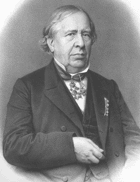About Manchu Studies
Early development
As an intellectual project, Manchu studies – sometimes called Manjuristics – traces its history back to the 17th and 18th centuries, when Jesuit missionaries at the Qing court found that to accomplish their goals it was necessary to become conversant in the language and culture of China’s rulers at the time. The earliest published works on Manchu history and language, largely in French, were the result of missionary endeavors. It is also worth noting that their belief that the Manchu translations of Chinese texts provided the best point of entry into the Chinese classical corpus shaped not only Manchu studies, but also the field of Sinology, then in its cradle.


In the 19th century, interest in Manchu continued to grow, in large part thanks to the efforts of linguists and philologists, especially in France, Germany, and Russia. A chair of Manchu studies was established by royal decree at the Collège de France in 1814, whose first two occupants — Jean-Pierre Abel-Rémusat (1788-1832) and Stanislas Julien (1797-1873) — made significant contributions to the field. Across Europe, more grammars and dictionaries began appearing in mid-century. In English, Thomas Taylor Meadows of the British consular service published a small work, Translations from the Manchu; With the Original Texts, Prefaced by an Essay on the Language (Canton, 1849) — the Manchu title was “Manju gisun be majige gisurehe bithe” — but the first complete English-language introduction to the language was P.G. von Möllendorff’s A Manchu Grammar, with Analysed Texts (available here from the California Digital Library) was published in Shanghai only in 1892.
Manchu studies in the 20th century
With the fall of the Qing dynasty in 1912, scholarly interest in Manchu began to wane. Most Sinologists fell in with the prevailing view among nationalistic Chinese scholars that the Manchus had become totally sinicized and that there was no real reason to study Manchu language or history. For most of the 20th century, the tradition of Manjuristics was kept alive primarily by philologists and historians in St. Petersburg, Berlin (later Bonn), and Tokyo. In the United States, the language continued to be taught at Harvard, Berkeley, the University of Washington, and Indiana University, but student numbers remained very small. With a few rare exceptions, scholars in mainland China and Taiwan completely neglected the field for most of the 1900s.
Beginning in 1980, after the opening of the Qing archives in Beijing, this situation began to change. New funding from the Chinese government enabled archivists to begin to put in order Manchu documents that had been left untouched for 60, and in some cases, 260 years. A new cohort of experts in the Manchu language was trained to do this work, a number of them native Sibe from Xinjiang. Scholars from Japan, Europe, and the US who explored the archives found they contained a large amount of material in Manchu – estimated at about 20% of the total archival deposit – and discovered that most of this material did not duplicate the Chinese-language sources, as had previously been thought. Gradually the news spread that the Manchu-language archives constituted a new treasure trove of documents on late imperial China and Inner Asia, which fueled a renascent curiosity in Manchu, mainly among historians.
Manchu studies today
Concomitant with the revelation that Manchu was an important research language for Qing history came the “ethnic turn” in Chinese studies, referring to the burgeoning interest in the non-Han peoples of China that began in the late 1980s. Anthropology has provided the cutting edge of much of this scholarship, but historians have contributed as well to ongoing debates regarding ethnicity, identity, nationalism, and “Chineseness.” Especially as modern Chinese nationalism was fired in the crucible of anti-Manchu revolution, issues relating to Manchu identity and the particulars of the Manchu experience as rulers of China have attracted much interest.
One outgrowth of this trend has been the development of the “New Qing History,” which has stirred considerable controversy in the field. Even critics acknowledge, however, that the importance of Manchu-language sources for research in the Qing can no longer be dismissed. In 2012, new centers for Manchu studies were established at the Qing History Institute at Renmin University and at the Research Institute for Korean Studies at Korea University.
